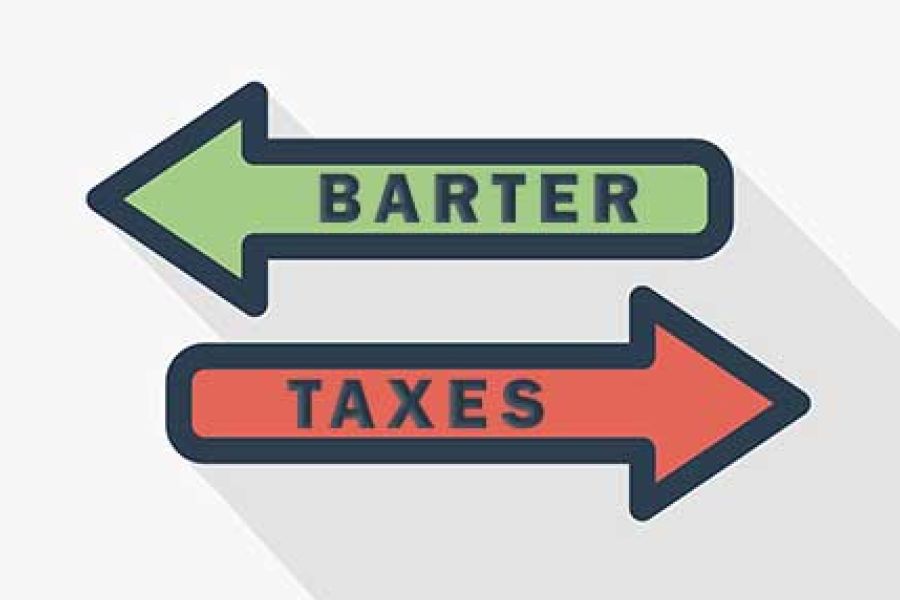When planning your estate, you’re likely focused on major assets, such as real estate, investments and retirement plans. But it’s also important to consider specific bequests of sentimental value assets. Examples include jewelry, antiques and photographs. These personal items — which often have modest monetary value but significant sentimental value — may be more difficult to deal with, and more likely to result in disputes, than big-ticket items. Squabbling over these items can lead to emotionally charged disputes and even litigation. In some cases, the legal fees and court costs can eclipse the monetary value of the property itself. Prepare a personal property memorandum Spelling out every gift of personal property in your will or trust can be cumbersome. Perhaps you want to leave your son a painting...

If you’re considering buying or selling a business — or you’re in the process of a merger or acquisition — it’s important to know that M&A transactions necessitate additional IRS filing by both parties. This affords the IRS the ability to ensure the transaction was reported the same way by both parties. Otherwise, you may increase your chances of being audited. If a sale involves business assets (as opposed to stock or ownership interests), buyer and seller must generally report to the IRS. What the IRS is interested in is the purchase price allocations that both use. This is done by preparing IRS Form 8594, “Asset Acquisition Statement”. This form is attached to each of their respective returns for the tax year that includes the transaction. M&A...
During your working days, you pay Social Security tax in the form of withholding from your salary or self-employment tax. And when you start receiving Social Security benefits, you may be surprised to learn that some of the payments may be taxed. If you’re getting close to retirement age, you may be wondering if Social Security benefits may be taxable. And if so, how much will you have to pay? The answer depends on your other income. If you are taxed, between 50% and 85% of your payments will be hit with federal income tax. (There could also be state tax.) Important: This doesn’t mean you pay 50% to 85% of your benefits back to the government in taxes. It means that you have to include 50%...
Small businesses may find it beneficial to barter for goods and services instead of paying cash for them. But know that bartering is a taxable transaction. The fair market value of goods that you receive in bartering is taxable income. And if you exchange services with another business, the transaction results in taxable income for both parties. Income is also realized if services are exchanged for property. For example, if a construction firm does work for a retail business in exchange for unsold inventory, it will have income equal to the fair market value of the inventory. Barter clubs Many business owners join barter clubs that facilitate barter exchanges. In general, these clubs use a system of “credit units” that are awarded to members who provide goods and...
Fraud experts have long known that “dark web” sites provide information, support and illicit goods to hackers and other criminals. But security company Terbium Labs recently published a report analyzing a treasure trove of fraud guides for sale on shady sites. Fraud guides help criminals hack your data. These “educational” publications provide crooks with detailed instructions on exploiting security weaknesses to hack networks, obtain financial information and steal identities. Effective tips While fraud guides help criminals, Terbium found that most of the guides it downloaded were relatively useless. Still, there were plenty that provided effective tips on compromising networks and disrupting antifraud procedures. The guides cover everything from account takeovers to phishing to counterfeit documents to stolen credit cards. Often, they discuss specific companies. For example, a...
A common estate planning mistake that people make is owning property with a family member. True, adding a loved one to the title of your home, bank account or other property can be a simple technique for leaving property to that person without the need for probate. But any convenience gained is usually outweighed by a variety of negative consequences. Here are four: (1) Higher gift and estate taxes Depending on the size of your estate, owning property with a family member may trigger gift and estate taxes. When you add a family member’s name to an asset’s title as joint owner, for example, it’s considered a taxable gift of half the asset’s value. And your interest in the asset — including any future appreciation — remains...
When businesses are defrauded, courts can — and in some states must — order restitution. But calculating fraud damages isn't that simple. It isn’t always easy for judges to decide how much a company has lost. That’s where fraud experts can help. Calculating fraud damages: Benefit of the bargain method At first glance, calculating restitution may seem easy: Someone steals $25,000, so he or she should repay that amount, perhaps with interest. But what about the profits the business lost because of the fraud? The answer varies by state and even by case. Experts typically use either the “benefit of the bargain” or “out of pocket” rule to determine damages. The appropriate method depends to some degree on the location and nature of the fraud. But in most...
The Tax Cuts and Jobs Act (TCJA) has changed the landscape for business taxpayers. These changes have caused many business owners to ask: Which entity is most suitable for me? TCJA introduced a flat 21% federal income tax rate for C corporations. Under prior law, profitable C corporations paid up to 35%. TCJA also cut individual income tax rates, which apply to sole proprietorships and pass-through entities, including partnerships, S corporations, and LLCs (treated as partnerships for tax purposes). However, the top rate dropped from 39.6% to only 37%. Which entity is most suitable: Entity tax basics Before the TCJA, conventional wisdom was that most small businesses should be set up as sole proprietorships or pass-through entities to avoid the double taxation of C corporations. A C corporation pays...
Divorce necessitates an estate plan review. It’s important to review your estate plan as early as possible, for two reasons: You may wish to revise your plan immediately to prevent your spouse from inheriting or gaining control over your assets if you die or become incapacitated before the divorce is final. Although a divorce judgment or settlement automatically extinguishes certain of your former spouse’s rights, some documents must be modified to ensure that he or she doesn’t receive unintended benefits. Consider revising your will and any revocable trusts to exclude your spouse. Note that, in many states, your spouse will retain elective share or community property rights to a portion of your estate until the marriage ends. But revising your will or trust will limit your spouse...
Using data analysis to detect fraud is changing the way many businesses operate. It’s also changing how forensic accountants do their jobs, providing fraud experts with the means to mine massive mounds of data like never before. USING DATA ANALYSIS TO DETECT FRAUD: 3 TECHNIQUES These analytical techniques are among the most efficient and effective at detecting occupational fraud: (1) Association analysis This method can help identify suspicious relationships by quantifying the odds of a combination of data points occurring together. In other words, it calculates the likelihood that, if one data point occurs, another will, too. If the combination occurs at an atypical rate, a red flag goes up. For example, association analysis might find that a certain supervisor tends to be on duty when inventory theft occurs. (2)...
- 1
- 2
- 3
- 4
- 5
- 6
- 7
- 8
- 9
- 10
- 11
- 12
- 13
- 14
- 15
- 16
- 17
- 18
- 19
- 20
- 21
- 22
- 23
- 24
- 25
- 26
- 27
- 28
- 29
- 30
- 31
- 32
- 33
- 34
- 35
- 36
- 37
- 38
- 39
- 40
- 41
- 42
- 43
- 44
- 45
- 46
- 47
- 48
- 49
- 50
- 51
- 52
- 53
- 54
- 55
- 56
- 57
- 58
- 59
- 60
- 61
- 62
- 63
- 64
- 65
- 66
- 67
- 68
- 69
- 70
- 71
- 72
- 73
- 74
- 75
- 76
- 77
- 78
- 79
- 80
- 81
- 82
- 83
- 84
- 85
- 86
- 87
- 88
- 89
- 90
- 91
- 92
- 93
- 94
- 95
- 96
- 97
- 98
- 99
- 100
- 101
- 102
- 103
- 104
- 105
- 106
- 107
- 108
- 109
- 110
- 111
- 112
- 113
- 114
- 115
- 116
- 117
- 118
- 119
- 120
- 121
- 122
- 123
- 124
- 125
- 126
- 127
- 128
- 129
- 130
- 131
- 132
- 133
- 134
- 135
- 136
- 137
- 138
- 139
- 140
- 141
- 142
- 143
- 144
- 145
- 146
- 147
- 148
- 149
- 150











